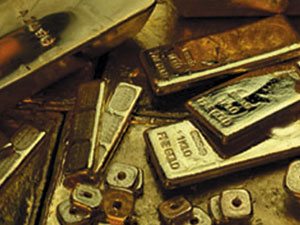
[miningmx.com] – SHARES in AngloGold Ashanti have raced up 50% in the last month taking the year-to-date performance into the green, up some 10% which is a rarety among South African gold shares.
In fact, none of the other main gold firms listed in Johannesburg can boast a positive performance this year with Harmony Gold down a worrying 53% – a performance that saw 14% shareholder, African Rainbow Minerals, book a R534m impairment.
The reason for the out-performance of AngloGold is the handy sale of its US-based gold mine Cripple Creek & Victor (CC&V) for $820m, a transaction that helped it buy back $810m in bonds. The debt is only due in 2020, but at some 8.5%, it is extremely expensive money, raised at a time when the gold price plummeted.
Thus the market rewarded significant de-leveraging of the balance sheet which helps remove the need to tap shareholders for funds provided operations are cash flow positive which, in the case of AngloGold, they are.
The sale of CC&V was so handsome that requirements to sell other non-core assets, such as AngloGold’s Mali and Ghana mines, is now not required. Should the gold market deteriorate further, however, the company has the firepower to reduce debt further.
There’s also considerable upside should markets improve. “Should gold prices rise, we believe AngloGold offers compelling leverage to a medium term de-gearing story,’ said Kane Slutzkin, a gold analyst for UBS.
The corollary is that heavily indebted companies will get punished, such as Lonmin, which has to honour bonds next year but which has surely left it late in sourcing either debt or a rights issue.
Issuing shares for under-fire mining companies at the current time is nasty business.
Impala Platinum (Implats), for instance, said it would issue up to R4bn in shares in October and while it has 49% shareholder support for the move, they will also be conscious that the share is down about a third in three months.
Terence Goodlace, CEO of Implats, acknowledged this was hardly an ideal situation. “Some of the things we are doing are not sustainable, but we have to survive,’ he said. “It really is very tough out there.’











